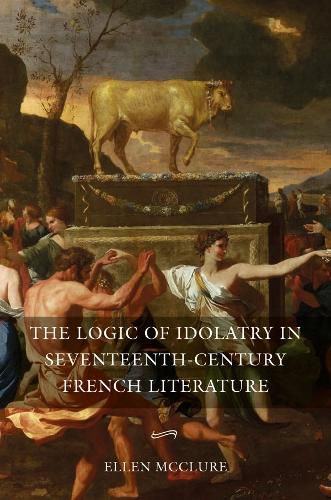Readings Newsletter
Become a Readings Member to make your shopping experience even easier.
Sign in or sign up for free!
You’re not far away from qualifying for FREE standard shipping within Australia
You’ve qualified for FREE standard shipping within Australia
The cart is loading…






Idolatry was one of the dominant and most contentious themes of early modern religious polemics. This book argues that many of the best-known literary and philosophical works of the French seventeenth century were deeply engaged and concerned with the theme. In a series of case studies and close readings, it shows that authors used the logic of idolatry to interrogate the fractured and fragile relationship between the divine and the human, with particular attention to the increasingly fraught question of the legitimacy of human agency. Reading d'Urfe, Descartes, La Fontaine, Sevigne, Moliere, and Racine through the lens of idolatry reveals heretofore hidden aspects of their work, all while demonstrating the link between the emergent autonomy of literature and philosophy and the confessional conflicts that dominated the period. In so doing, Professor McClure illustrates how religion can become a source of interpretive complexity, and how this dynamism can and should be taken into account in early modern French studies and beyond.
$9.00 standard shipping within Australia
FREE standard shipping within Australia for orders over $100.00
Express & International shipping calculated at checkout
Idolatry was one of the dominant and most contentious themes of early modern religious polemics. This book argues that many of the best-known literary and philosophical works of the French seventeenth century were deeply engaged and concerned with the theme. In a series of case studies and close readings, it shows that authors used the logic of idolatry to interrogate the fractured and fragile relationship between the divine and the human, with particular attention to the increasingly fraught question of the legitimacy of human agency. Reading d'Urfe, Descartes, La Fontaine, Sevigne, Moliere, and Racine through the lens of idolatry reveals heretofore hidden aspects of their work, all while demonstrating the link between the emergent autonomy of literature and philosophy and the confessional conflicts that dominated the period. In so doing, Professor McClure illustrates how religion can become a source of interpretive complexity, and how this dynamism can and should be taken into account in early modern French studies and beyond.